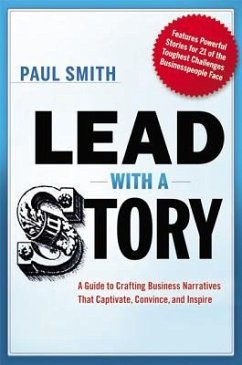
Understanding Leadership Perspectives
Theoretical and Practical Approaches
Versandkostenfrei!
Versandfertig in 6-10 Tagen
106,99 €
inkl. MwSt.
Weitere Ausgaben:

PAYBACK Punkte
53 °P sammeln!
There is no dearth of popular books on leadership, often extolling the virtues of charismatic, celebrity leaders or offering simplistic formulas for "inspiring the troops" to achieve "extraordinary results". However, empirical research and exploration of leadership and its many elements is in much less supply. Confronted by failures of leadership in all of our major institutions-business, government, educational, cultural, medical, and spiritual-researchers, concerned citizens, and would-be leaders alike are interested in the prospects for achieving effective leadership. This book fills a gap in the literature of Leadership Studies by presenting the Leadership Perspectives Model (LPM), which observes and analyzes leadership through five distinct orientations: scientific management, excellence management, values leadership, trust cultural leadership, and spiritual leadership. Operating from the premise that "leadership" and "management" require fundamentally different sets of tools, behaviors, and approaches, the authors unpack the distinctions and provide empirical, theoretical, and practical insights to improve our understanding of leadership dynamics in a world increasingly defined by complexity, diversity, technology-based communication, and interconnectivity. Presenting a comprehensive review of the field, including a history of the most influential schools of thought, and empirical studies of leadership in the public and private sectors, the authors dispel common myths and misconceptions about leadership and provide greater clarity to its art and science.
hand. Indeed, we do not easily move out of one mind-set into another. What we believe to be true given our particular experience often seems to be the only truth. Often we need some outside force to trigger reevaluation and rethinking. That triggering force to intellectual growth may be a new idea, a new situation, a new value, a new boss, or some other significant emotional event - maybe, even, a new book. The Resear ch F oundation This book is founded on two pillars: one, a model of five leadership mind-sets c- mon in the last 100 years first presented in Gilbert W. Fairholm 's (1998a, 1998b) book, Perspectives on Leadership: From the Science of Management to its Spiritual Heart ; and two, Matthew R. Fairholm's (2002) dissertation, Conceiving Leadership: Exploring Five Perspectives of Leadership by Investigating the Conceptions and Experiences of Selected Metropolitan Washington Area Municipal Managers , which analyzed and validated the perspectives model (see the Appendix for more details). The data collected confirm there are five distinct perspectives of leadership evident in the 100-year history of leadership study and practice. The resulting model defines the five perspectives in terms of descriptions of leadership in action, leadership tools and behaviors, and the way leaders approach their relationship to followers. The five perspectives are related hierarchically so that they progressively encompass a unique perspective of the leadership phenomenon.














